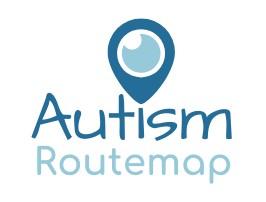Why looking for the “silver lining” isn't enough to solve challenges

In the story of David and Goliath, we read that David, a young shepherd boy with no experience of battle, ran towards the giant. The other war-hardened soldiers lay cowering in fear. But David ran. No armour, no sword, no training, no experience. And, no-one who believed that he could defeat Goliath.
What gave David this confidence? He had an invincible belief that he would win. His faith and past experiences with a bear and lion convinced him that he could defeat the odds. And so, he did.
Our beliefs are cultivated over time. They start to form very early on with input from our primary caregivers. That soon expands to include other influencers like teachers, friends and the multitude of everyday experiences which mould our inner world.
By the time we reach adulthood, we hold some very well fortified beliefs about ourselves and the world in general. Have you ever tried to convince someone of your views when they believe the opposite? It really doesn’t matter how much evidence you produce – they will continue believing that the earth is flat even if you fly them to space to see for themselves.
When we face challenges, we naturally think about what’s going on and plan how we’re going to tackle the issue. Our thoughts can be one of our greatest assets or they can lead us down the path of defeat.
Our beliefs form the foundation for our thoughts – “I don’t know how to do this”, “I can figure this out”, “I am on my own”, “I can trust her”, “I can’t trust him”. Whether positive or negative, our thoughts stem from our underlying beliefs.
If you’ve ever tried to “look on the bright side” when you feel like you are going under, then you know it’s not that simple. Dark, gloomy thoughts have a way of resurfacing when you least expect them. You won’t easily change your thoughts unless you change your beliefs.
Your brain strongly dislikes contradiction. This is why thoughts that contradict your underlying beliefs get rejected. And you soon find yourself reverting back to thoughts which match your beliefs. It’s why we sometimes have a hard time accepting compliments. If someone says something positive about you, but you don’t really believe it, you’ll find a way to explain their “error” – for example, “they’re only being nice to me because they want something”.
Another contributing factor in our ability to deal with challenges is our tendency towards a negative bias. Your brain logs past negative experiences and tags them with a “do not repeat” note. It works hard to keep you safe by looking for and preventing other experiences which pose a similar threat. So, for example, if you were bullied as a child, it’s highly likely that you will feel emotionally triggered by people who put you down or someone bullying your own child.
So, can we develop new thought patterns which set us up for success in response to challenges when our underlying beliefs and neural wiring may be drawing us down a different path?
The evidence strongly suggests that beliefs can be changed. Watch an old movie and you may well see racial or gender attitudes that wouldn’t make it onto a modern-day script.
Beliefs do change. And if that’s the case, then how do we develop “David-like” mindsets in response to our personal Goliaths?
Developing new beliefs is a little like installing new software into your computer. You are replacing the old system which worked fine in the past but is no longer suitable for today. You are not the same person that you were 5, 10 or 20 years ago. Some of your beliefs need an upgrade.
Upgrading human beliefs is an intentional process. When you install new software onto your computer, you uninstall the old software. Not so with the human brain. Old beliefs cannot simply be uninstalled. They are not instantly forgotten. What was built over time must be dismantled over time.
New beliefs need nurturing. They start like tiny seeds which are planted in soil. They need protecting from excessive heat. They need watering. But with time and the right conditions, they will grow roots, become strong and begin to bear fruit.
So, create the conditions in which new beliefs can be cultivated. Set aside daily time to reflect on your life. Consider the different areas that need your attention – work, friends, family, health, emotions, experiences, finances, spiritual and educational. What needs your attention now?
Having identified an area to focus on, note the thoughts you have about that situation? Are you thinking about things that are outside of your control? Are your thoughts very negative? How can you reframe those thoughts to reflect a true but positive perspective? For example, “I will only be happy once this lockdown is over” can be reframed as, “This is tough, but for now, I’ll focus on the small things that bring me joy every day”.
To stop yourself from using your old-outdated software, you need to rehearse new thought patterns until they become part of your belief system. Write down your reframed thoughts as you develop them in each of the areas of your life. Read them daily. Let them take root and become your default way of thinking.
In my next post, I'll share other ways to develop thinking patterns which get us running towards our giants.
To your mindset success!
Linda Philips
MSc. Human Communication
Autism Routemap supports autistic and neurodiverse people with coaching and training to improve communication, interaction, and emotional regulation skills. Interested in knowing how we can help?
Contact linda.philips@autismroutemap.com or book a free Turning Point call here.

